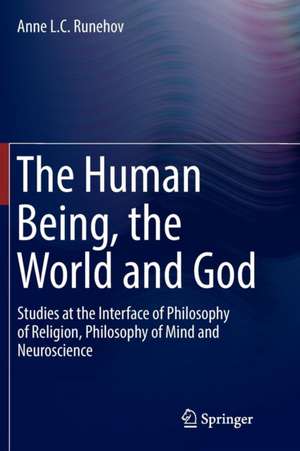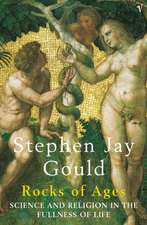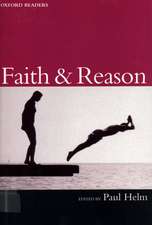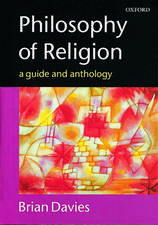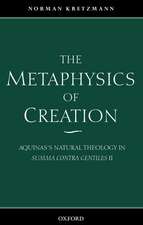The Human Being, the World and God: Studies at the Interface of Philosophy of Religion, Philosophy of Mind and Neuroscience
Autor Anne L.C. Runehoven Limba Engleză Paperback – 27 iun 2018
| Toate formatele și edițiile | Preț | Express |
|---|---|---|
| Paperback (1) | 383.12 lei 43-57 zile | |
| Springer International Publishing – 27 iun 2018 | 383.12 lei 43-57 zile | |
| Hardback (1) | 390.46 lei 43-57 zile | |
| Springer International Publishing – 4 oct 2016 | 390.46 lei 43-57 zile |
Preț: 383.12 lei
Nou
Puncte Express: 575
Preț estimativ în valută:
73.31€ • 76.75$ • 60.66£
73.31€ • 76.75$ • 60.66£
Carte tipărită la comandă
Livrare economică 07-21 aprilie
Preluare comenzi: 021 569.72.76
Specificații
ISBN-13: 9783319830476
ISBN-10: 3319830473
Ilustrații: XXI, 186 p. 5 illus., 1 illus. in color.
Dimensiuni: 155 x 235 mm
Greutate: 0.3 kg
Ediția:Softcover reprint of the original 1st ed. 2016
Editura: Springer International Publishing
Colecția Springer
Locul publicării:Cham, Switzerland
ISBN-10: 3319830473
Ilustrații: XXI, 186 p. 5 illus., 1 illus. in color.
Dimensiuni: 155 x 235 mm
Greutate: 0.3 kg
Ediția:Softcover reprint of the original 1st ed. 2016
Editura: Springer International Publishing
Colecția Springer
Locul publicării:Cham, Switzerland
Cuprins
Part I. Human Being.- 1. A Two- and Threefold Self.- 2. The Human Experiencer.- 3. Human Uniqueness.- Part II. The World.- 4. Understanding Reality.- 5. Mindreading.- 6. Free will, Responsibility and Moral Evil.- 7. Human Time.- Part III. God.- 8. God-Human-God Relationship.- 9. Final Conclusions and Reflections
Notă biografică
Anne L.C. Runehov has a Reader (Associate Professor) degree from the Uppsala University. She earned a Doctor degree in Philosophy of Religion at Uppsala University, and a Master degree in Theoretical Philosophy, major Philosophy of Mind at the same university. She is editor in chief for the 4 volume Encyclopedia of Sciences and Religions, Springer 2013. Co-EiC is prof. Lluis Oviedo. She is co-editor of the ESSSAT series Issues in Science and Religion, Springer. She was also editor in chief for the series Copenhagen University Discussions in Science and Religion, Faculty of Theology publications, Copenhagen until May 2014. She is also field editor for the European Journal of Science and Theology. She is the author of Sacred or Neural? The Potential of Neuroscience to Explain Religious Experiences Vandenhoeck & Ruprecht, 2007, which is based on her doctoral thesis for which she received the 2006 ESSSAT research prize. Furthermore,she has been the director of the Copenhagen Network for Science and Religion 2008-2013), funded by the John Templeton Foundation. She published several peer-reviewed articles. Runehov has mainly (but not merely) been working within the debate of Science and Philosophy of Religion and philosophy of Mind. Her main research interests has been Neuroscience, Cognitive science and Quantum Mechanics which are studied from a perspective of Philosophy of Religion, Philosophy of Mind, Epistemology and Philosophy of Science.
Textul de pe ultima copertă
This book offers a philosophical analysis of what it is to be a human being in all her aspects. It analyses what is meant by the self and the I and how this feeling of a self or an I is connected to the brain. It studies specific cases of brain disorders, based on the idea that in order to understand the common, one has to study the specific. The book shows how the self is thought of as a three-fold emergent self, comprising a relationship between an objective neural segment, a subjective neural segment and a subjective transcendent segment. It explains that the self in the world tackles philosophical problems such as the problem of free will, the problem of evil, the problem of human uniqueness and empathy. It demonstrates how the problem of time also has its place here. For many people, the world includes ultimate reality; hence the book provides an analysis and evaluation of different relationships between human beings and Ultimate Reality (God). The book presents an answer tothe philosophical problem of how one could understand divine action in the world.
Caracteristici
Is unique in that it concerns different aspects of the human being Takes different disciplines into account, such as neuroscience, psychology and social science Is a philosophical analysis, investigating the soundness of arguments as well as of research results
